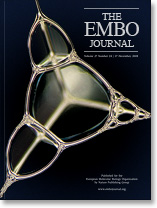 A new retraction — his fifth — in the Journal of Immunology for Alirio Melendez, formerly of the National University of Singapore, the University of Glasgow, and the University of Liverpool, sheds some light on the results of an investigation by one of the universities.
A new retraction — his fifth — in the Journal of Immunology for Alirio Melendez, formerly of the National University of Singapore, the University of Glasgow, and the University of Liverpool, sheds some light on the results of an investigation by one of the universities.
Last month, a Glasgow spokesperson told Nature that the university’s investigation had been completed in October 2011, but that it did not comment on individual cases. A spokesperson, according to the Times Higher Education:
…would say only that there was “no evidence that our current staff contributed, falsified or duplicated data to any publications co-authored with (Professor) Melendez”. He also confirmed that relevant journals would be contacted where retractions or corrections were deemed necessary.
The notice for one such necessary retraction, in the September 15 issue of the Journal of Immunology, gives a few details: Continue reading Fifth Alirio Melendez retraction offers clues about University of Glasgow misconduct findings
 The retraction counts keep mounting for two Retraction Watch frequent flyers.
The retraction counts keep mounting for two Retraction Watch frequent flyers.







